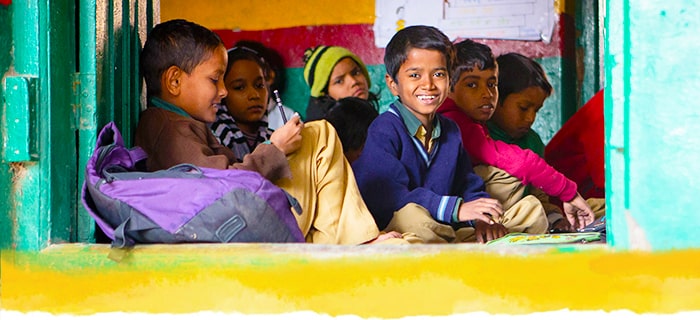Why Children & Environment ?
Children and the environment are intrinsically linked. Investing in their well-being and preservation ensures a sustainable future for generations to come. Children are the future custodians of the planet, and providing them with access to education, healthcare, and a safe environment creates a positive cycle of growth and development. At the same time, promoting eco-friendly initiatives and protecting natural resources benefits not just the environment but also the health and well-being of communities. Focusing on both areas creates a harmonious balance between social and environmental responsibility, ensuring a better world for all.

India’s children & battle some of the worst circumstances in the world.
-
The Plight of India's Children
Overcoming Poverty, Illiteracy, and Malnutrition
-
Environmental Challenges in India
Pollution, Climate Change, and Deforestation
-
Empowering the Future
How Our NGO is Making a Difference for Children and the Environment in India
The challenge at hand is immense, but not insurmountable. We can overcome it in our lifetime.
Together, we can make a difference by utilizing our individual strengths to achieve a sustainable solution for this pressing issue.

The Importance Of Children’s Rights
According to the United Nations Convention on the Rights of the Child (UNCRC), which was ratified by India in 1992, all children have fundamental rights which must be recognized by governments and citizens alike. At CRY, we’re committed to doing everything we can to ensure the rights of India’s children and so, work on 4 key programmatic areas.

EducationRight To Development
A quality education not only builds knowledge, capabilities, life skills and values amongst children but also develops their creative, social and emotional abilities. It is crucial for their cognitive and personal development, including critical thinking and problem-solving.
We believe that every child should be able to go to school and complete their education without any discrimination based on gender, caste or socio-economic status.
UNSHAPED DREAMS education programs focus on:
A child’s early years are the foundation for developing their future learning abilities. Research says that 80% of a child’s brain is developed by the age of 3, which makes early childhood education an essential building block of a child’s future success.
It has been observed that Anganwadi centres play a big role in preparing children for formal primary school. They help children develop the skills, knowledge and attitudes which are critical for them to succeed in school as well as late in life. Building the capacity of Anganwadi workers thus becomes a key area of intervention.
Learning outcomes are influenced by children’s uninterrupted access to quality education. Ensuring that children are enrolled in school and don’t drop out before completing their education age appropriately is thus a critical area of intervention.






